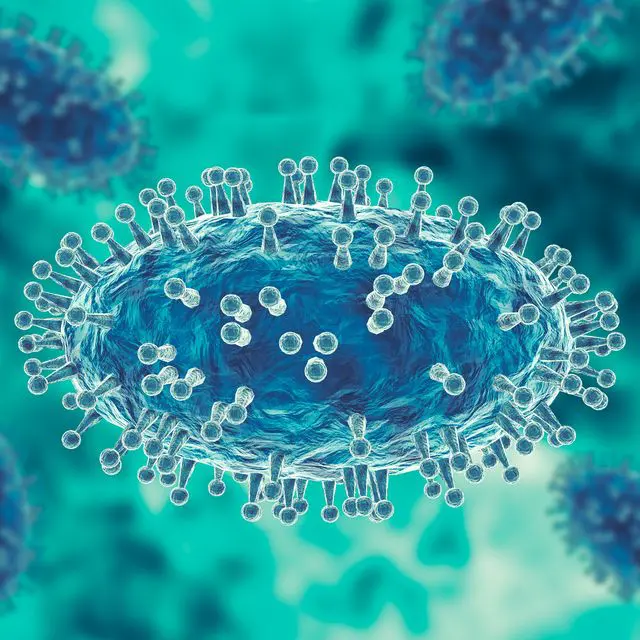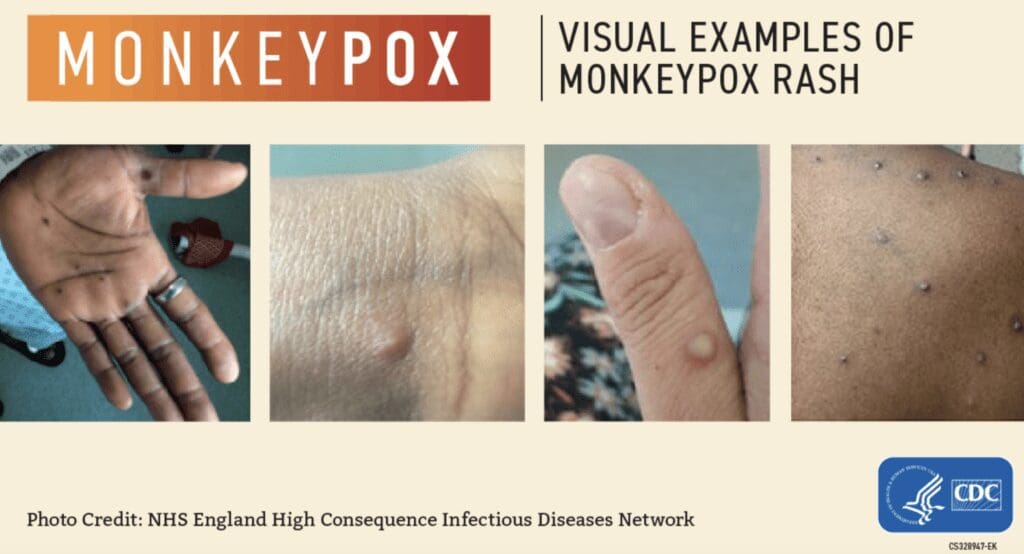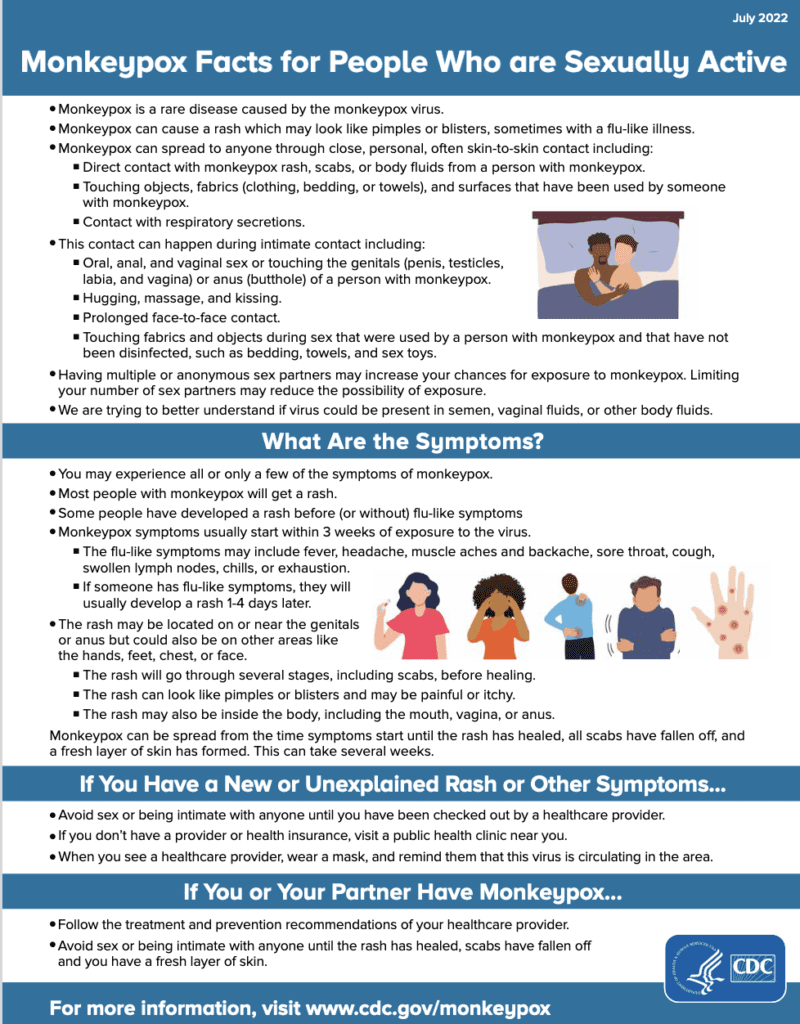Search Posts
Recent Posts
- Senior Agenda Coalition of RI pushes wealth tax to fund programs for older residents – Herb Weiss June 2, 2025
- How will Artificial Intelligence (AI) impact the future of work – Mary T. O’Sullivan June 2, 2025
- Real Estate in RI: Tiverton contemporary for $1.27M June 2, 2025
- Our Networking Pick of the Week: Coffee Hour at Provence Sur Mer, Newport June 2, 2025
- Rhode Island Weather for June 2, 2025 – Jack Donnelly June 2, 2025
Categories
Subscribe!
Thanks for subscribing! Please check your email for further instructions.

RI Dept. of Health Monkeypox Task Force on prevention and control
As national health experts continue to track the ongoing global outbreak of monkeypox, the Rhode Island Department of Health (RIDOH)’s Monkeypox Task Force is coordinating with healthcare providers, healthcare facilities, and communities on monkeypox prevention and control measures.
Monkeypox is a rare disease caused by infection with the monkeypox virus. As part of this current outbreak, four monkeypox cases have been identified in Rhode Island. More than 1,000 cases have been identified nationally, including 49 cases in Massachusetts, and 159 cases in New York. Current evidence from around the country suggests that the virus is spreading mostly through close, intimate contact with someone who has monkeypox.
“At this time, the risk of monkeypox for most Rhode Islanders is low. However, we are taking this global outbreak very seriously,” said Governor Dan McKee. “We are coordinating with our federal partners and are ensuring that healthcare providers throughout the state are prepared to identify any cases and get patients into the appropriate treatment and care.”
“At RIDOH we are working to help the public understand how to prevent monkeypox now, with a focus on communities at higher risk,” said Interim Director of Health Utpala Bandy, MD, MPH. “At the same time, we are laying out future plans to get more prevention tools and resources into the community as they are made available by the federal government.”
There is ample testing capacity for monkeypox, anti-viral treatment (Tecovirimat), and an FDA-approved vaccine (JYNNEOS) available to prevent this infection. However, the vaccine is currently in short supply nationally.
The measures currently being taken by RIDOH’s Monkeypox Task Force include:
- Performing case interviews and contact identification to collect the clinical and epidemiological information needed for isolation, contact monitoring, and post-exposure vaccination.
- In consultation with patients’ healthcare providers and the Centers for Disease Control and Prevention (CDC), assessing cases to determine whether they are appropriate candidates for antiviral treatment (Tecovirimat).
- Coordinating the post-exposure preventive vaccination of close contacts. (All vaccination is being coordinated through RIDOH on a referral basis.)
- Coordinating with select healthcare facilities to serve as vaccination sites. These sites serve communities at the highest risk of exposure.
- Regularly communicating with healthcare providers on clinical recognition, specimen collection, and case reporting 24/7.
- Coordinating specimen collection, transport, and analysis at RIDOH’s State Health Laboratories for clinically compatible cases 24/7.
- Partnering with community organizations and businesses that serve higher risk populations on prevention education.
RIDOH’s Monkeypox Task Force includes staff from RIDOH’s Division of Preparedness, Response, Infectious Disease, and Emergency Medical Services; the Office of Immunization; the State Health Laboratories; the Health Equity Institute; and RIDOH’s Center for Public Health Communication.
Monkeypox Symptoms
- Fever
- Headache
- Muscle aches and backache
- Swollen lymph nodes
- Chills
- Exhaustion
- A rash that can look like pimples or blisters that appears on the face, inside the mouth, and on other parts of the body, like the hands, feet, chest, genitals, or anus
- Sometimes people get a rash first, followed by other symptoms. Others only experience a rash. The rash goes through different stages before healing completely. Most infections last two to four weeks and resolve on their own, but some cases can become severe.
Monkeypox Transmission
An individual becomes contagious when symptoms first appear. Transmission occurs through close physical contact with body fluids, monkeypox lesions, items that have been contaminated with fluids or lesion materials (clothing, bedding, etc.), or through respiratory droplets following prolonged face-to-face contact. The infectious period ends when all skin sores have crusted over. This may take between two and four weeks. Deaths and hospitalizations from monkeypox are rare.
Monkeypox is much less transmissible than COVID-19, which spreads through the air. Nationally, many gay men, bisexual men, and other men who have sex with men have been diagnosed with monkeypox, especially those who have reported multiple or anonymous sexual partners. RIDOH has shared information about monkeypox and sexually transmitted infection prevention for this group on its “Sexual Health Information for Gay/Bisexual Men and Gender Diverse People” web page. However, people of any sexual orientation or gender identity can become infected and spread monkeypox. RIDOH urges everyone to avoid stigmatizing a particular group or person for monkeypox, but rather support those at highest risk and ensure that all communities remain vigilant.
Monkeypox Prevention
There is a vaccine to help prevent monkeypox virus infection. However, this vaccine is currently in short supply nationally. The CDC is using a very specific formula to allocate monkeypox vaccine to states, considering factors such as population size, current monkeypox case counts, and historical data on sexually transmitted infections. For this reason, Rhode Island has been allocated much less vaccine than other states (for example, Massachusetts). At this time, Rhode Island has only been allocated enough vaccine to vaccinate close contacts of cases. Vaccination of contacts within four days of exposure can prevent illness and if given within 14 days of exposure can significantly reduce severity of illness should the person develop illness.

If a person has symptoms, particularly a rash consistent with monkeypox (even if they do not think they were in contact with anyone with monkeypox), or if they have been in contact with someone who has been diagnosed with monkeypox, they should:
- Stay home and isolate from household members
- Contact a healthcare provider as soon as possible for an evaluation
- Avoid skin-to-skin, or close contact with others, including sexual contact, until a medical evaluation has been completed
- Inform sex partners about any symptoms you are experiencing
- Cover the rash with clean, dry, loose-fitting clothing
- If contacted by public health officials, answer their questions to help protect others who may have been exposed
More information about monkeypox is available at health.ri.gov/monkeypox – and also at the CDC, here: https://www.cdc.gov/poxvirus/monkeypox/index.html

